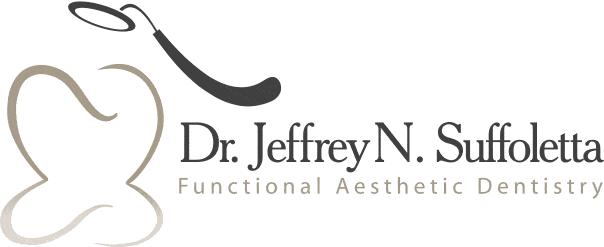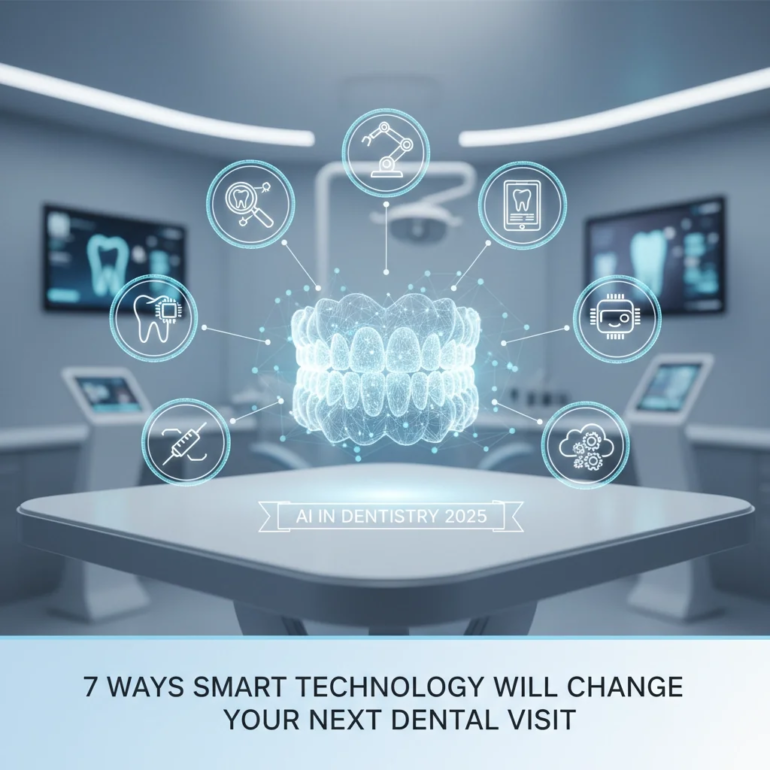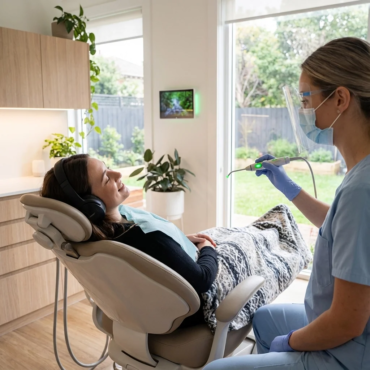7 Ways Smart Technology Will Change Your Next Dental Visit
The dental experience you remember from years past is rapidly transforming. AI in dentistry has moved beyond experimental phases into practical, everyday tools that are reshaping how dental professionals diagnose, treat, and care for patients. By 2025, approximately 30% of dental practices now incorporate AI technology in their diagnostic processes, representing a significant shift in how oral healthcare is delivered.
These technological advances aren’t just impressive innovations, they directly benefit your care by improving accuracy, reducing treatment time, and enhancing your overall comfort during dental visits. Understanding how AI integrates into modern dentistry can help you feel more confident about your next appointment and the quality of care you’ll receive.
Enhanced Diagnostic Imaging Detects Problems Earlier
Artificial Intelligence powered diagnostic tools now analyze your X-rays and dental images with remarkable precision, often catching issues that might be missed during routine visual examinations. Advanced algorithms can identify early signs of cavities, gum disease, and even oral cancer with accuracy rates consistently above 90%.
Research analyzing over 600 dental radiographs demonstrated that AI diagnostic systems perform comparably to expert clinicians when detecting dental caries and periodontal disease. More importantly for your care, these systems excel at identifying problems in their earliest stages, when treatment is typically less invasive and more successful.
For example, AI software in dentistry can now measure bone levels for periodontal disease assessment with an average difference of just 0.3 millimeters compared to expert consensus: roughly the width of a needle. This level of precision means your dentist can detect gum disease progression before it becomes visible to the naked eye, allowing for earlier intervention and better long-term outcomes.
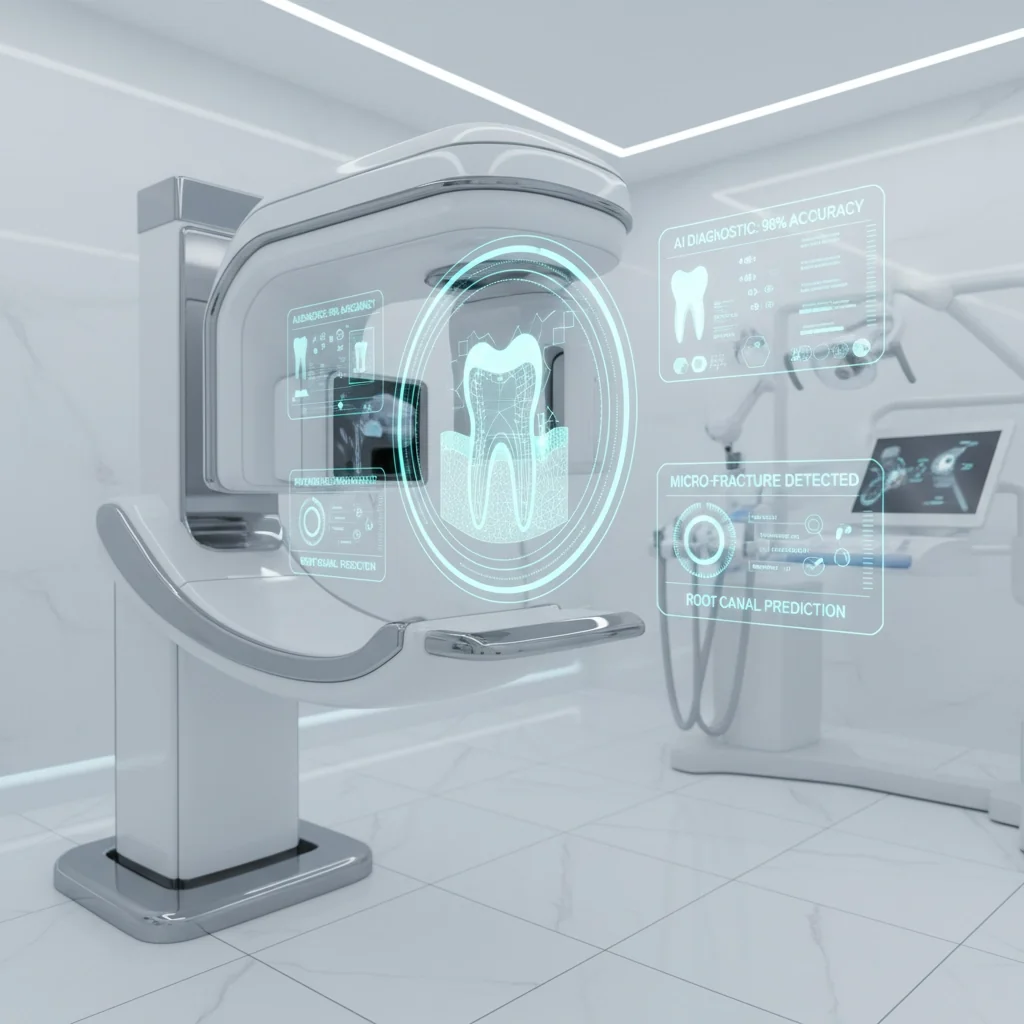
Consequently, your regular checkups become more thorough and reliable, with AI in dentistry as an additional layer of diagnostic security that works alongside your dentist’s clinical expertise.
Predictive Treatment Planning Reduces Guesswork
Modern AI systems can analyze your oral health history, diagnostic images, and data from thousands of similar cases to predict treatment outcomes with greater accuracy than traditional methods alone. Studies show that AI predictive modeling tools achieve accuracy rates of approximately 73% when forecasting orthodontic treatment results.
This technology allows your dentist to design more precise treatment plans by simulating various approaches and predicting which will be most effective for your specific situation. Rather than relying solely on experience and general protocols, your treatment plan can be customized based on predictive models that consider your unique oral anatomy and health history.
As a result, you’re more likely to experience successful outcomes with fewer adjustments or complications during treatment. The AI system continuously learns from new data, meaning treatment recommendations become increasingly refined over time.
Voice Technology Streamlines Your Appointment Experience
Voice-activated technology now enables dentists to document findings and update your records without stepping away from your chair or turning to a computer screen. This hands-free approach to clinical documentation means your dentist can maintain focus on your care while still ensuring accurate record-keeping.
Modern voice recognition systems can automatically transcribe clinical notes, handle periodontal charting, and document restorative procedures in real-time. This eliminates the traditional delays between examination and documentation that previously interrupted the flow of your appointment.
Consequently, appointments move more smoothly, with less time spent on administrative tasks and more attention devoted to your actual care. You benefit from your dentist’s undivided attention during examinations and procedures, while still ensuring that all important details are accurately recorded in your dental records.
Virtual Assistants Improve Scheduling and Support
AI-powered virtual assistants now handle many routine administrative tasks that traditionally required phone calls during business hours. These systems can schedule appointments, send appointment reminders, manage basic billing inquiries, and provide 24/7 support for common questions about treatments or post-care instructions.
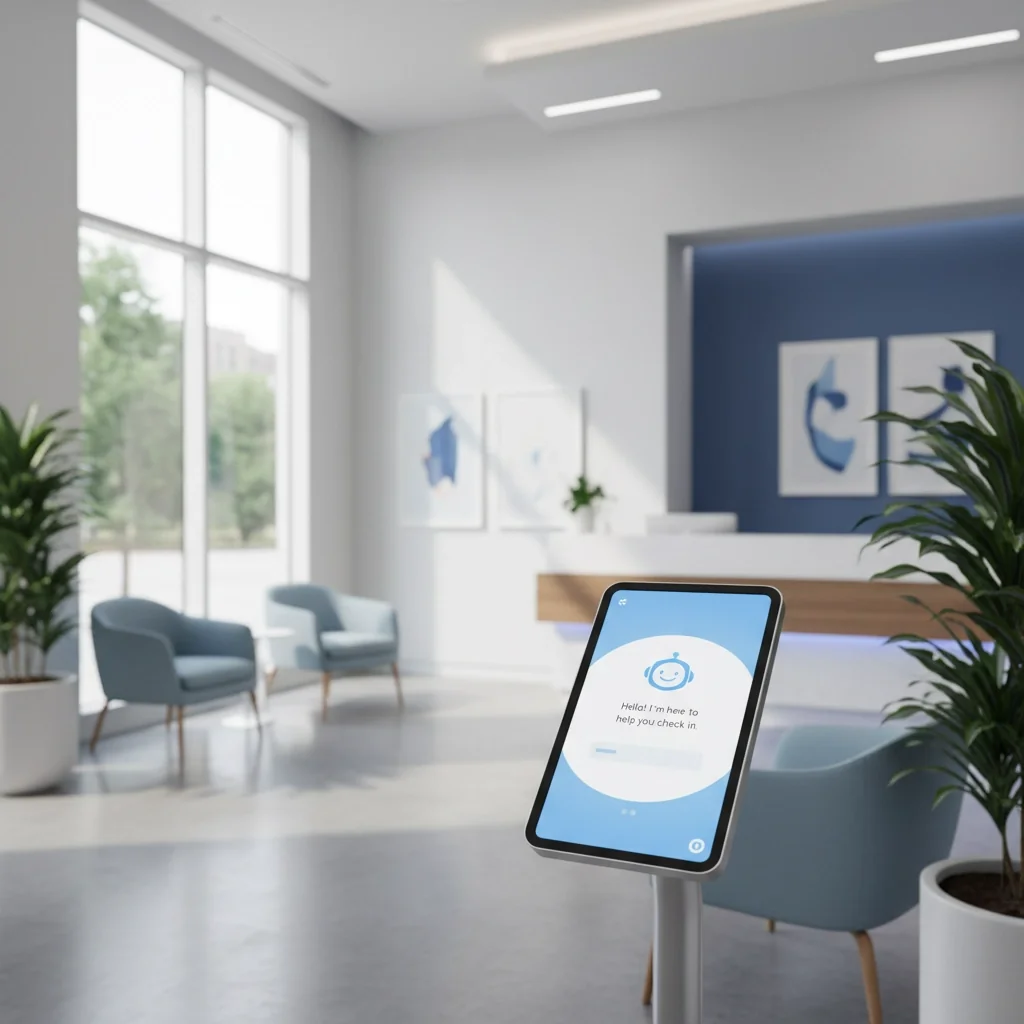
More advanced virtual assistant systems can communicate with you directly through secure messaging platforms, answering questions about your treatment plan, explaining pre- and post-procedure instructions, and helping you understand what to expect during upcoming appointments.
This technology particularly benefits busy patients who need to manage appointments outside traditional business hours or prefer digital communication. Fortunately, these systems are designed to escalate complex questions to human staff members, ensuring you receive appropriate attention for concerns that require professional judgment.
Personalized Orthodontics Through Smart Technology
AI has revolutionized orthodontic treatment by enabling highly customized tooth alignment solutions. Using AI-powered 3D imaging and predictive algorithms, orthodontists can now design aligners and braces that precisely match your unique dental structure and movement patterns.
The software simulates how your teeth will move throughout treatment, predicting the final outcome before treatment even begins. This simulation capability allows for more accurate aligner fitting, potentially reduced treatment time, and improved comfort during the alignment process.
Companies integrating AI into their aligner production processes can offer treatment approaches that are both more efficient and more effective than traditional one-size-fits-most solutions. The result is orthodontic care that’s truly personalized to your specific needs and goals.
As a result, you can have greater confidence in your treatment timeline and expected results, with fewer surprises or adjustments needed along the way.
Smart Home Monitoring Maintains Health Between Visits
AI technology now extends beyond the dental office into your daily oral care routine. Smart toothbrushes equipped with AI sensors can monitor your brushing technique, track areas you consistently miss, and provide real-time feedback to improve your home care effectiveness.
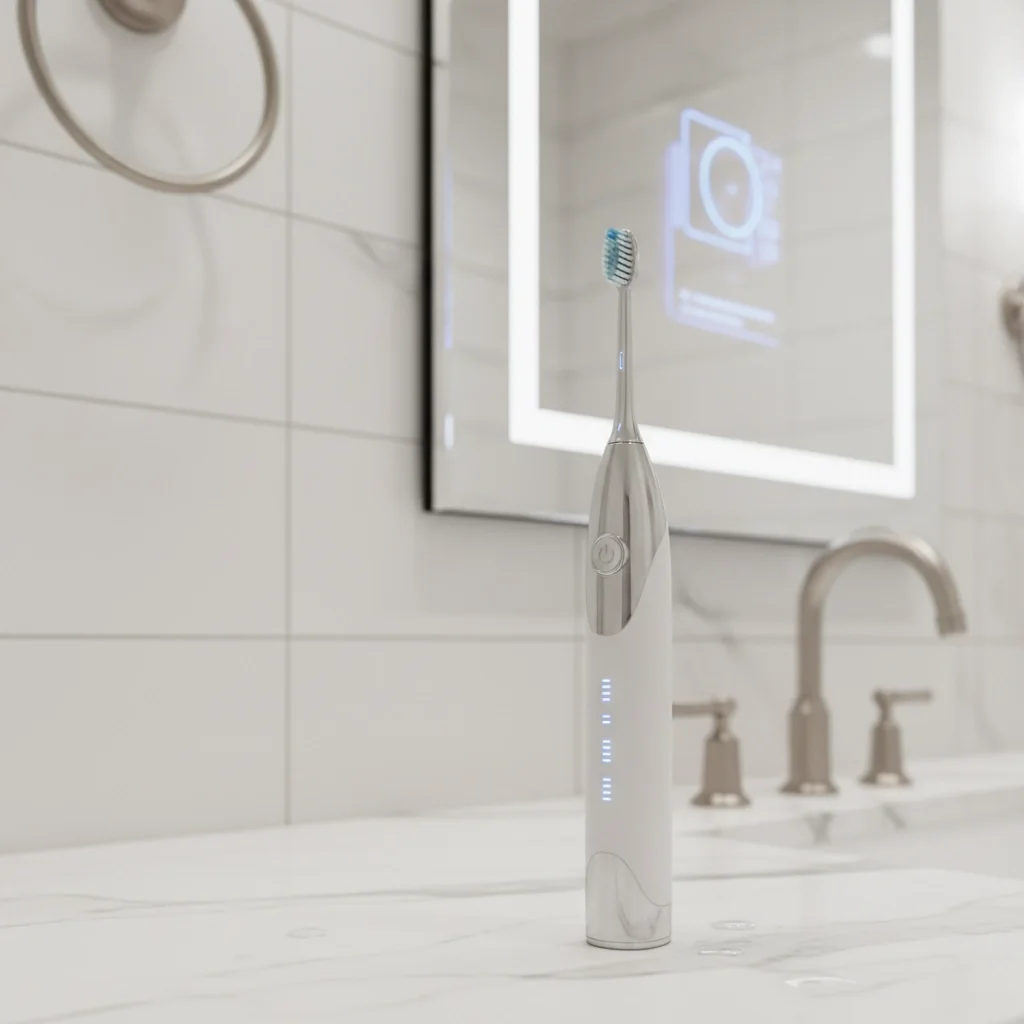
These devices can alert you to potential problems developing between appointments, such as increased bleeding in specific areas or changes in your brushing patterns that might indicate emerging issues. Some smart oral care devices can even share data with your dental team, providing them with insights into your daily oral health habits.
This continuous monitoring proves particularly valuable for patients with a history of gum disease or those who struggle with maintaining consistent oral hygiene routines. The technology provides gentle, consistent reminders and guidance that can help improve your long-term oral health outcomes.
Streamlined Administrative Operations Enhance Your Experience
Behind the scenes, AI systems are transforming practice management through intelligent scheduling platforms. As well as, automated insurance verification, and improved patient education tools. These improvements directly benefit your experience by reducing wait times, minimizing insurance-related delays, and ensuring you receive relevant, timely information about your care.
AI-powered scheduling systems can optimize appointment timing based on treatment type, your preferences, and practice workflow, reducing the likelihood of delays or rushed appointments. Insurance verification systems can process your coverage information more quickly and accurately, helping you understand your benefits and out-of-pocket costs before treatment begins.
Additionally, automated patient education systems can provide you with customized information about your specific treatments, helping you make informed decisions about your care and understand what to expect during recovery.
Moving Forward with AI in Dentistry
These AI innovations work together to create a more efficient, accurate, and comfortable dental experience. AI in dentistry technology doesn’t replace your dentist’s expertise. It instead provides them with more powerful tools to deliver better care while allowing more time for the human elements of dentistry that matter most to you.
Understanding these technological advances can help you feel more confident about seeking dental care. Thereby, discussing treatment options with your dental team. As these systems continue to evolve, they promise to make dental visits more predictable, comfortable, and successful for patients of all ages.
If you have questions about how AI in dentistry technology might benefit your specific dental needs, consider discussing these advances with your dental team during your next appointment. They can explain which technologies they use and how these tools contribute to your personalized care plan.
